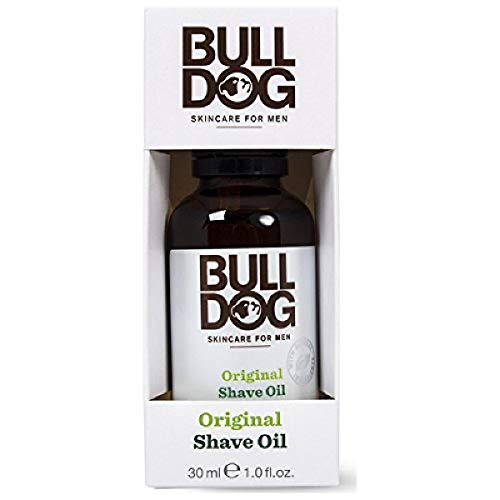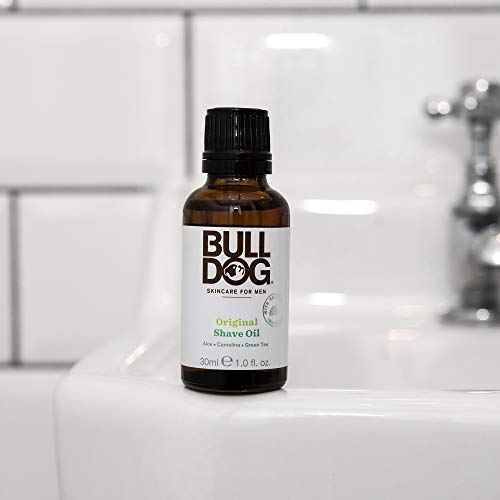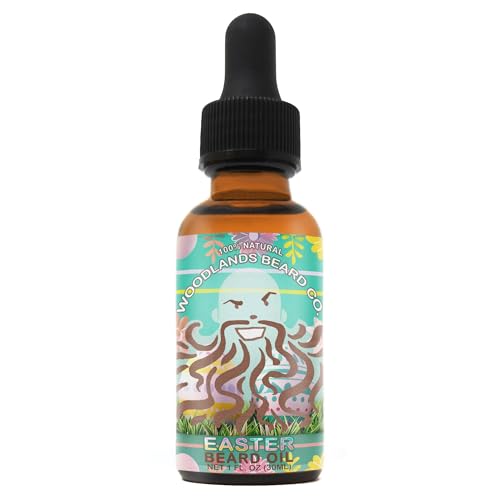


Woodlands Beard Co. Easter Beard Oil - Nourishing Jojoba & Argan Oils, Handcrafted - 1 Fl Oz


Citrus Aurantifolia (Lime) Peel Oil
Medium RiskCitrus aurantifolia (lime) peel oil is derived from the peel of lime fruits. It is commonly used for its aromatic properties in various products, including cosmetics and personal care items, where it may serve as a fragrance or natural preservative.
Sustai Insights
Citrus aurantifolia (lime) peel oil offers functional benefits as a natural fragrance and potential antimicrobial agent. However, it has a high allergenic potential, posing risks of skin irritation and sensitization. Environmental concerns include its persistence in ecosystems and moderate use restrictions in some regions. Regulatory bodies have advised caution regarding its use due to these health and environmental risks. Overall, the ingredient is assessed as a medium risk, suggesting careful usage and consideration of alternatives, such as non-citrus essential oils or synthetic fragrances, for sensitive applications.
Myroxylon Pereirae (Balsam Peru) Resin
Medium RiskMyroxylon pereirae (balsam peru) resin is an organic compound derived from the Myroxylon pereirae tree, primarily used in cosmetic and personal care products for its fragrance and potential skin-soothing properties. It functions as a natural resin and may also act as a fixative in formulations.
Sustai Insights
Balsam peru resin offers functional benefits as a fragrance and fixative in cosmetic products and is sustainably sourced. However, it is associated with high allergenic potential, prompting caution in sensitive individuals. Its environmental risks include concerns about allergenic properties but low carcinogenicity and reproductive toxicity. Regulatory bodies impose restrictions on its usage due to potential adverse effects. Overall, the risk level of balsam peru resin is assessed as medium, and safe usage practices should be followed. Alternatives may include synthetic fragrances that do not pose similar allergenic risks.
Argania Spinosa (Argan) Kernel Oil
Low RiskArgania spinosa (argan) kernel oil is a fixed oil extracted from the kernels of the argan tree, native to Morocco. It is commonly used in cosmetic formulations for its moisturizing properties, serving as an emollient and skin conditioner.
Sustai Insights
Argania spinosa kernel oil offers functional benefits such as effective hydration and nourishment for the skin and hair. It is sustainably sourced and biodegradable, contributing positively to environmental considerations. Health risks are low, with minimal concerns regarding carcinogenicity, allergies, or reproductive toxicity. There are no current regulatory restrictions on its use. Overall, it poses low risk, making it a suitable ingredient in cosmetic products. Safe usage practices should be maintained, and alternatives like jojoba oil may also be considered for similar benefits.
Citrus Limon (Lemon) Peel
Low RiskCitrus limon (lemon) peel is derived from the outer skin of lemons and is commonly used in cosmetic formulations for its aromatic properties and potential skin benefits. It serves primarily as a fragrance agent and may also provide antioxidant effects.
Sustai Insights
Citrus limon (lemon) peel is valued for its aromatic contributions and potential antioxidant properties, which can enhance product appeal. It has a low risk of adverse health effects, including low concerns for carcinogenicity, allergies, and irritation. Environmental risks are minimal, with no significant evidence of bioaccumulation or pollution. Regulatory assessments indicate no restrictions on use. Overall, it is considered low risk, and safe usage practices should be maintained. Alternatives may include other citrus peels or natural fragrance compounds.
Pelargonium Capitatum (Geranium) Oil
Low RiskPelargonium capitatum (geranium) oil is an essential oil derived from the leaves and stems of the Pelargonium capitatum plant. It is primarily used for its fragrance in cosmetic products and may also serve as a natural preservative and antimicrobial agent.
Sustai Insights
Pelargonium capitatum oil is valued for its aromatic properties and potential antimicrobial benefits, contributing to product stability. It is considered low risk for health concerns, including carcinogenicity, allergenicity, and reproductive toxicity. Environmentally, it poses minimal risks, being biodegradable and not bioaccumulative. Regulatory assessments do not indicate significant restrictions, reinforcing its safety profile. Overall, it presents a low risk based on current scientific evidence, making it a suitable ingredient in cosmetic formulations.
Simmondsia Chinensis (Jojoba)
Low RiskSimmondsia chinensis, commonly known as jojoba, is an oil derived from the seeds of the jojoba plant. It is commonly used in cosmetic formulations for its moisturizing properties, acting as an emollient and skin conditioning agent.
Sustai Insights
Jojoba oil offers functional benefits such as effective skin moisturization and is biodegradable, with sustainable sourcing practices. Health risks are low, with minimal concerns regarding carcinogenicity, allergies, and reproductive toxicity. Environmental impact is negligible, with no pollutant or bioaccumulation potential. Regulatory status is favorable with no significant restrictions noted. Overall, it is assessed as low risk, and safe usage practices should be maintained. Alternatives include other plant-derived oils like argan or almond oil, which may provide similar benefits.
Vanilla Planifolia (Vanilla) Oil
Low RiskVanilla planifolia (vanilla) oil is an essential oil derived from the beans of the vanilla plant. It is commonly used in cosmetic formulations for its aromatic properties and acts as a fragrance component, enhancing the sensory experience of products.
Sustai Insights
Vanilla oil offers functional benefits as a natural fragrance and is often sustainably sourced, contributing to its appeal. Health risks are minimal, with low concerns regarding carcinogenicity, allergens, and reproductive toxicity. Environmentally, it does not present significant hazards. Regulatory bodies have not imposed severe restrictions on its use, indicating a low-risk profile overall. Safe usage practices should still be observed, and alternatives may include other plant-derived oils for fragrance.
Citrus Aurantifolia (Lime) Peel Oil
Medium RiskCitrus aurantifolia (lime) peel oil is derived from the peel of lime fruits. It is commonly used for its aromatic properties in various products, including cosmetics and personal care items, where it may serve as a fragrance or natural preservative.
Sustai Insights
Citrus aurantifolia (lime) peel oil offers functional benefits as a natural fragrance and potential antimicrobial agent. However, it has a high allergenic potential, posing risks of skin irritation and sensitization. Environmental concerns include its persistence in ecosystems and moderate use restrictions in some regions. Regulatory bodies have advised caution regarding its use due to these health and environmental risks. Overall, the ingredient is assessed as a medium risk, suggesting careful usage and consideration of alternatives, such as non-citrus essential oils or synthetic fragrances, for sensitive applications.
Argania Spinosa (Argan) Kernel Oil
Low RiskArgania spinosa (argan) kernel oil is a fixed oil extracted from the kernels of the argan tree, native to Morocco. It is commonly used in cosmetic formulations for its moisturizing properties, serving as an emollient and skin conditioner.
Sustai Insights
Argania spinosa kernel oil offers functional benefits such as effective hydration and nourishment for the skin and hair. It is sustainably sourced and biodegradable, contributing positively to environmental considerations. Health risks are low, with minimal concerns regarding carcinogenicity, allergies, or reproductive toxicity. There are no current regulatory restrictions on its use. Overall, it poses low risk, making it a suitable ingredient in cosmetic products. Safe usage practices should be maintained, and alternatives like jojoba oil may also be considered for similar benefits.
Citrus Limon (Lemon) Peel
Low RiskCitrus limon (lemon) peel is derived from the outer skin of lemons and is commonly used in cosmetic formulations for its aromatic properties and potential skin benefits. It serves primarily as a fragrance agent and may also provide antioxidant effects.
Sustai Insights
Citrus limon (lemon) peel is valued for its aromatic contributions and potential antioxidant properties, which can enhance product appeal. It has a low risk of adverse health effects, including low concerns for carcinogenicity, allergies, and irritation. Environmental risks are minimal, with no significant evidence of bioaccumulation or pollution. Regulatory assessments indicate no restrictions on use. Overall, it is considered low risk, and safe usage practices should be maintained. Alternatives may include other citrus peels or natural fragrance compounds.
Pelargonium Capitatum (Geranium) Oil
Low RiskPelargonium capitatum (geranium) oil is an essential oil derived from the leaves and stems of the Pelargonium capitatum plant. It is primarily used for its fragrance in cosmetic products and may also serve as a natural preservative and antimicrobial agent.
Sustai Insights
Pelargonium capitatum oil is valued for its aromatic properties and potential antimicrobial benefits, contributing to product stability. It is considered low risk for health concerns, including carcinogenicity, allergenicity, and reproductive toxicity. Environmentally, it poses minimal risks, being biodegradable and not bioaccumulative. Regulatory assessments do not indicate significant restrictions, reinforcing its safety profile. Overall, it presents a low risk based on current scientific evidence, making it a suitable ingredient in cosmetic formulations.
Simmondsia Chinensis (Jojoba)
Low RiskSimmondsia chinensis, commonly known as jojoba, is an oil derived from the seeds of the jojoba plant. It is commonly used in cosmetic formulations for its moisturizing properties, acting as an emollient and skin conditioning agent.
Sustai Insights
Jojoba oil offers functional benefits such as effective skin moisturization and is biodegradable, with sustainable sourcing practices. Health risks are low, with minimal concerns regarding carcinogenicity, allergies, and reproductive toxicity. Environmental impact is negligible, with no pollutant or bioaccumulation potential. Regulatory status is favorable with no significant restrictions noted. Overall, it is assessed as low risk, and safe usage practices should be maintained. Alternatives include other plant-derived oils like argan or almond oil, which may provide similar benefits.
Vanilla Planifolia (Vanilla) Oil
Low RiskVanilla planifolia (vanilla) oil is an essential oil derived from the beans of the vanilla plant. It is commonly used in cosmetic formulations for its aromatic properties and acts as a fragrance component, enhancing the sensory experience of products.
Sustai Insights
Vanilla oil offers functional benefits as a natural fragrance and is often sustainably sourced, contributing to its appeal. Health risks are minimal, with low concerns regarding carcinogenicity, allergens, and reproductive toxicity. Environmentally, it does not present significant hazards. Regulatory bodies have not imposed severe restrictions on its use, indicating a low-risk profile overall. Safe usage practices should still be observed, and alternatives may include other plant-derived oils for fragrance.
Myroxylon Pereirae (Balsam Peru) Resin
Medium RiskMyroxylon pereirae (balsam peru) resin is an organic compound derived from the Myroxylon pereirae tree, primarily used in cosmetic and personal care products for its fragrance and potential skin-soothing properties. It functions as a natural resin and may also act as a fixative in formulations.
Sustai Insights
Balsam peru resin offers functional benefits as a fragrance and fixative in cosmetic products and is sustainably sourced. However, it is associated with high allergenic potential, prompting caution in sensitive individuals. Its environmental risks include concerns about allergenic properties but low carcinogenicity and reproductive toxicity. Regulatory bodies impose restrictions on its usage due to potential adverse effects. Overall, the risk level of balsam peru resin is assessed as medium, and safe usage practices should be followed. Alternatives may include synthetic fragrances that do not pose similar allergenic risks.
Experience the joy of spring with Woodlands Beard Co.'s Easter Beard Oil. This handcrafted formula combines the nourishing power of jojoba and argan oils with a delightful Easter-inspired scent, making it the perfect addition to any grooming routine.
- Deep Nourishment: Jojoba and argan oils work together to condition and soften your beard, promoting a healthy shine and manageability.
- Festive Aroma: Enjoy the uplifting blend of Peru balsam, vanilla, lemon, lime, orange, and geranium, reminiscent of blooming springtime delights.
- Versatile Application: Suitable for all beard lengths, this oil can be used daily for optimal beard health and an inviting fragrance.
- Handcrafted Quality: Each 1 fl oz bottle is made in small batches in the USA, ensuring premium quality and freshness.
- Sustainable Packaging: Packaged in dark amber glass, this oil preserves potency while being environmentally friendly.
Elevate your grooming game with this unique seasonal blend, designed for the environmentally conscious consumer.
Subscribe & Save with Sustai
- Best Price Guarantee: Always enjoy the lowest prices on sustainable home essentials.
- No Surprises: We’ll notify you before shipping. No hidden fees, ever.
- You’re in Charge: Change, pause, or cancel your subscription anytime with ease.
- Eco-Friendly Deliveries: Our grouped shipments mean less packaging and lower emissions.
Join us on a sustainable journey. Special offers for a limited time! Prices and promotions may change.
Recommended Products
Experience the joy of spring with Woodlands Beard Co.'s Easter Beard Oil. This handcrafted formula combines the nourishing power of jojoba and argan oils with a delightful Easter-inspired scent, making it the perfect addition to any grooming routine.
- Deep Nourishment: Jojoba and argan oils work together to condition and soften your beard, promoting a healthy shine and manageability.
- Festive Aroma: Enjoy the uplifting blend of Peru balsam, vanilla, lemon, lime, orange, and geranium, reminiscent of blooming springtime delights.
- Versatile Application: Suitable for all beard lengths, this oil can be used daily for optimal beard health and an inviting fragrance.
- Handcrafted Quality: Each 1 fl oz bottle is made in small batches in the USA, ensuring premium quality and freshness.
- Sustainable Packaging: Packaged in dark amber glass, this oil preserves potency while being environmentally friendly.
Elevate your grooming game with this unique seasonal blend, designed for the environmentally conscious consumer.

You can have at most 2 Sustainable Steals products in your cart
Customer Reviews
Customers’ View
Customers appreciate the nourishing qualities of Woodlands Beard Co. Beard Oil, citing its ability to soften and manage various beard types. The combination of jojoba and argan oils is frequently praised for deeply conditioning the beard, aligning with health-conscious values. Users also enjoy the festive aroma, which enhances their grooming experience without being overpowering. Many highlight the handcrafted quality of the product, noting its small-batch production as a testament to care and freshness. Additionally, the use of protective dark amber glass for packaging is recognized as a thoughtful choice that preserves the oil's potency. Overall, customers find this beard oil effective and consistent with their environmentally aware grooming routines.
AI-generated from the text of customer reviewsThis product has no reviews yet.




